- Home
- George R. R. Martin
Dreamsongs 2-Book Bundle
Dreamsongs 2-Book Bundle Read online
Dreamsongs: Volume I and Dreamsongs: Volume II are works of fiction. Names, places, and incidents either are products of the author’s imagination or are used fictitiously.
A Bantam Dell eBook Edition
Dreamsongs: Volume I copyright © 2007 by George R. R. Martin
Dreamsongs: Volume II copyright © 2007 by George R. R. Martin
All Rights Reserved.
Published in the United States by Bantam Books, an imprint of The Random House Publishing Group, a division of Random House, Inc., New York.
Bantam Books and colophon are registered trademarks of Random House, Inc.
The novels contained in this omnibus were each published separately by Bantam Books, an imprint of The Random House Publishing Group, a division of Random House, Inc., in 2007.
eBook ISBN: 978-0-345-53845-1
www.bantamdell.com
v3.1
Contents
Cover
Title Page
Copyright
Dreamsongs: Volume I
Dreamsongs: Volume II
DREAMSONGS: VOLUME 1
A Bantam Spectra Book / November 2007
Originally published in one volume as GRRM: A RRetrospective by Subterranean Press in 2003
Published by
Bantam Dell
A Division of Random House, Inc.
New York, New York
This is a work of fiction. Names, characters, places, and incidents either are the product of the author’s imagination or are used fictitiously. Any resemblance to actual persons, living or dead, events, or locales is entirely coincidental.
All rights reserved
Copyright © 2003 by George R. R. Martin
Please see Introduction by Gardner Dozois for additional copyright information.
Illustrations by Michael Wm. Kaluta
Bantam Books, the rooster colophon, Spectra, and the portrayal of a boxed “s” are trademarks of Random House, Inc.
Library of Congress Cataloging-in-Publication Data
Martin, George R. R.
[GRRM]
Dreamsongs / George R. R. Martin.
p. cm.
“A Bantam Spectra book”—T.p. verso.
Originally published in one volume as: GRRM : a rretrospective.
Burton, MI : Subterranean Press, c2003.
1. Fantasy fiction, American. I. Title.
PS3563.A7239G77 2007
813'.54—dc22
2007017681
www.bantamdell.com
eISBN: 978-0-553-90432-1
Cover design: Dreu Pennington-McNeil
Cover illustration: © Dominic Harmon
v3.1
Story Copyrights
Introduction copyright © 2003 by Gardner R. Dozois.
“Only Kids Are Afraid of the Dark” copyright © 1967 by Larry Herndon. From Star-Studded Comics, #10, Winter 1967.
“The Fortress” copyright © 2003 by George R. R. Martin.
“And Death His Legacy” copyright © 2003 by George R. R. Martin.
“The Hero” copyright © 1971 by UPD Publishing Corporation. Copyright renewed © 2001 by George R. R. Martin. From Galaxy, February 1971.
“The Exit to San Breta” copyright © 1971 by Ultimate Publishing Company, Inc. Copyright renewed © 2001 by George R. R. Martin. From Fantastic Stories, February 1972.
“The Second Kind of Loneliness” copyright © 1972 by the Condé Nast Publications, Inc. Copyright renewed © 2001 by George R. R. Martin. From Analog, December 1972.
“With Morning Comes Mistfall” copyright © 1973 by the Condé Nast Publications, Inc. Copyright renewed © 2002 by George R. R. Martin. From Analog, May 1973.
“A Song for Lya” copyright © 1974 by the Condé Nast Publications, Inc. Copyright renewed © 2002 by George R. R. Martin. From Analog, June 1974.
“This Tower of Ashes” copyright © 1976 by the Condé Nast Publications, Inc. From Analog Annual (Pyramid, 1976).
“And Seven Times Never Kill Man” copyright © 1975 by the Condé Nast Publications, Inc. From Analog, July 1975.
“The Stone City” copyright © 1977 by George R. R. Martin. From New Voices in Science Fiction (Macmillan, 1977).
“Bitterblooms” copyright © 1977 by Baronet Publishing Company. From Cosmos, November 1977.
“The Way of Cross and Dragon” copyright © 1979 by Omni International, Ltd. From Omni, June 1979.
“The Lonely Songs of Laren Dorr” copyright © 1976 by Ultimate Publishing Co, Inc. From Fantastic Stories, May 1976.
“The Ice Dragon” copyright © 1980 by George R. R. Martin. From Dragons of Light (Ace, 1980).
“In the Lost Lands” copyright © 1982 by George R. R. Martin. From Amazons II (DAW, 1982).
“Meathouse Man” copyright © 1976 by Damon Knight. From Orbit 18 (Harper & Row, 1976).
“Remembering Melody” copyright © 1981 by TZ Publications, Inc. From Rod Serling’s Twilight Zone Magazine, April 1981.
“Sandkings” copyright © 1979 by Omni International, Ltd. From Omni, August 1979.
“Nightflyers” copyright © 1980, 1981 by George R. R. Martin. From Binary Star 5 (Dell, 1981). A shorter version of this story originally appeared in Analog, April 1980, copyright © 1980 by the Condé Nast Publications, Inc.
“The Monkey Treatment” copyright © 1983 by the Mercury Press, Inc. From The Magazine of Fantasy & Science Fiction, July 1983.
“The Pear-Shaped Man” copyright © 1987 by Omni International, Ltd. From Omni, October 1987.
CONTENTS
Master - Table of Contents
Dreamsongs: Volume I
Title Page
Copyright
Story Copyrights
INTRODUCTION BY GARDNER DOZOIS
ONE
A FOUR-COLOR FANBOY
ONLY KIDS ARE AFRAID OF THE DARK
THE FORTRESS
AND DEATH HIS LEGACY
TWO
THE FILTHY PRO
THE HERO
THE EXIT TO SAN BRETA
THE SECOND KIND OF LONELINESS
WITH MORNING COMES MISTFALL
THREE
THE LIGHT OF DISTANT STARS
A SONG FOR LYA
THIS TOWER OF ASHES
AND SEVEN TIMES NEVER KILL MAN
THE STONE CITY
BITTERBLOOMS
THE WAY OF CROSS AND DRAGON
FOUR
THE HEIRS OF TURTLE CASTLE
THE LONELY SONGS OF LAREN DORR
THE ICE DRAGON
IN THE LOST LANDS
FIVE
HYBRIDS AND HORRORS
MEATHOUSE MAN
REMEMBERING MELODY
SANDKINGS
NIGHTFLYERS
THE MONKEY TREATMENT
THE PEAR-SHAPED MAN
GEORGE R. R. MARTIN
BY GARDNER DOZOIS
Although he’s been a major player in several different genres for more than thirty years, has won Hugo Awards, Nebula Awards, and World Fantasy Awards, George R. R. Martin has finally made it, beyond the shadow of a doubt.
The sure and certain sign of this is that someone else’s book was recently advertised as being “In the tradition of George R. R. Martin!” When you’re successful enough, when your books sell well enough that publishers try to entice customers to buy someone else’s book by saying that it’s like yours, then you’ve made it, you’re a really Big Name Author, and no argument is possible.
If you doubt me, think of the other writers whose names are invoked with the phrase “in the tradition of” to sell books: J. R. R. Tolkien, Robert E. Howard, H. P. Lovecraft, Stephen King, J. K. Rowling. That’s pretty heady and high-powered company, but there’s little doubt that Ge
orge—who, with his epic A Song of Ice and Fire novel sequence has become one of the best-selling, and, at the same time, most critically acclaimed of modern fantasists—belongs there … although if you’d told young George, the unpublished eager novice, that one day his name would be ranked in such august company, I’m sure he wouldn’t have believed you … wouldn’t have dared to let himself believe you, believe such an obvious wish-fulfillment fantasy.
Another thing the young George might not have believed, and something that many of his legions of present-day fans might not even know (and one thing that this collection is designed to demonstrate), is that George would become prominent in several different fields of endeavor. George has had respectable careers as a science fiction writer, a horror writer, a fantasy writer, a writer and producer for the television industry, and as an editor/ compiler/concept-originator for the long-running Wild Cards series of stories and novels by many different hands, which has now reached its sixteenth volume, with the seventeenth on the way. What George has accomplished in each of these fields would satisfy many another professional as a life’s work—one to be bragged about, in fact.
Not George, though, the greedy swine—he had to go and reach well-deserved prominence in all of them!
Born in Bayonne, New Jersey, George R. R. Martin made his first sale in 1971, and soon established himself as a mainstay of the Ben Bova Analog with vivid, evocative, and emotionally powerful stories such as “With Morning Comes Mistfall,” “And Seven Times Never Kill Man,” “The Second Kind of Loneliness,” “The Storms of Windhaven” (in collaboration with Lisa Tuttle, and later expanded by them into the novel Windhaven), “Override,” and others, although he was also selling to Amazing, Fantastic, Galaxy, Orbit, and other markets during this period. One of his Analog stories, the striking novella “A Song for Lya,” won him his first Hugo Award, in 1974.
By the end of the ’70s, he had reached the height of his influence as a science fiction writer, and was producing his best work in that category—and some of the best work by anyone in that period—with stories such as the famous “Sandkings,” perhaps his single best-known story, which won both the Nebula and the Hugo in 1980, “The Way of Cross and Dragon,” which won a Hugo Award in the same year (making George the first author ever to receive two Hugo Awards for fiction in the same year), “Bitterblooms,” “The Stone City,” “Starlady,” and others. These stories would be initially collected in Sandkings, one of the strongest collections of the period. By now, he had mostly moved away from Analog, although he would have a long sequence of stories about the droll interstellar adventures of Haviland Tuf (later collected in Tuf Voyaging) running throughout the ’80s in the Stanley Schmidt Analog, as well as a few strong individual pieces such as the novella “Nightflyers”—most of his major work of the late ’70s and early ’80s, though, would appear in Omni, at the time the best-paying market in science fiction, the top of the SF short-fiction food chain. (The late ’70s also saw the publication of his memorable novel Dying of the Light, his only solo SF novel.)
By the early middle years of the ’80s, though, George’s career was turning in other directions, directions that would take him far from the kind of career-path that you might have forecast for him in the ’70s. Horror was starting to burgeon then as a separate publishing category, in the early and middle ’80s, and George would produce two of the most original and distinctive novels of the Great Horror Boom period of the ’80s: 1982’s Fevre Dream, an intelligent and suspenseful horror novel set in a vividly realized historical milieu, still one of the best of modern vampire novels, and 1983’s big, ambitious, “rock ’n’ roll horror apocalypse,” Armageddon Rag. Although still considered a cult classic by some, Armageddon Rag was a severe commercial disappointment, and would pretty much bring George’s career as a horror novelist to an end, although he’d continue to write horror at short lengths for a while, later winning the Bram Stoker Award for his horror story “The Pear-Shaped Man” and the World Fantasy Award for his werewolf novella “The Skin Trade.” (Although most of George’s horror was supernatural horror, he’d also do some interesting work during this period with science fiction/horror hybrids, including the above-mentioned “Sandkings” and “Nightflyers,” two of the best such stories ever produced, perfectly valid both as science fiction and as horror at the same time.)
The fact that the Great Horror Boom of the ’80s was itself beginning to run out of steam by this point, with stores pulling out the separate shelves for horror they’d put in a few years before and publishers folding their horror imprints, probably helped George with his decision to turn away from the horror genre. Increasingly, though, he’d turn away from the print world altogether, and move into the world of television instead, becoming a story editor on the new Twilight Zone series in the mid ’80s, and later becoming a producer on the hugely popular fantasy series Beauty and the Beast.
Highly successful as a writer/story editor/producer in the television world, George had little contact with the print world throughout the mid-’80s (although he did win another Nebula in 1985 for his story “Portraits of His Children”) and throughout most of the decade of the ’90s, except as editor of the long-running Wild Cards shared-world anthologies, which reached fifteen volumes before the series faltered to a stop in the late ’90s (it has made a resurgence in the new century, though, after a seven-year hiatus, so that Wild Cards is back in business as I write these words). By then, soured on the television business by the failure of his stillborn series Doorways to make it onto the air, Martin returned to the print world with the publication in 1996 of the immensely popular and successful fantasy novel A Game of Thrones, one of that year’s best-selling genre titles.
The rest, as they say, is history. Genre fantasy history, but history nevertheless.
The novels and stories in the A Song of Ice and Fire sequence have maintained their popularity throughout the rest of the ’90s and into the first years of the new century, and even built on it. All three volumes to date have won the Locus Award for Best Fantasy Novel in their respective years, and all three have been on the Final Nebula Ballot. A Game of Thrones was also a finalist for the World Fantasy Award, and A Storm of Swords was a finalist for the Hugo Award. A free-standing novella taken from A Game of Thrones and published in Asimov’s Science Fiction, “Blood of the Dragon,” won Martin another Hugo Award in 1997.
What is it that has enabled George to captivate readers in so many different fields? What qualities are there about George’s work that ensnare readers, no matter what kind of story he’s telling?
For one thing, George has always been a richly romantic writer. Dry minimalism or the cooly ironic games of postmodernism so beloved by many modern writers and critics are not what you’re going to get when you open something by George R. R. Martin. What you’re going to get instead is a strongly-plotted story driven by emotional conflict and crafted by someone who’s a natural-born storyteller, a story that grabs you on the first page and refuses to let go. You’re going to get adventure, action, conflict, romance, and lush, vivid human emotion: obsessive, doomed love, stark undying hatred, unquenchable desire, dedication to duty even in the face of death, unexpected veins of rich humor … and something that’s rare even in science fiction and fantasy these days (let alone the mainstream)—a love of adventure for adventure’s sake, a delighting in the strange and colorful, bizarre plants and animals, exotic scenery, strange lands, strange customs, stranger people, backed by the inexhaustible desire to see what’s over the next hill, or waiting on the next world.
George is clearly a direct descendant of the old Planet Stories tradition, probably influenced by Jack Vance and Leigh Brackett in particular, although you can see strong traces of writers such as Poul Anderson and Roger Zelazny in his work as well. In spite of having long been a mainstay of Analog, science and technology play little real part in his work, where the emphasis is on color, adventure, exoticism, and lush romance, in a universe crowded and jostling both with alie
n races and human societies that have evolved toward strangeness in isolation, and where the drama is often generated by the inability of one of these cultures to clearly understand the psychology and values and motivations of another. “Color” is a word that can’t be used too much in describing George’s worlds, and, if you let him sweep you away with him, he’ll take you to some of the most evocative places in recent SF and fantasy: to Mistfall at Castle Cloud on Wraithworld, to the endless windswept grasslands known as “the Dothraki Sea,” to the cold ancient maze of the Stone City, to the bristlingly deadly oceans of Namor, to dusk over the High Lakes at Kabaraijian.…
The most important reason, though, why so many readers are affected so strongly by George’s work is the people. George has created a gallery of vivid characters—sometimes touching, sometimes grotesque, sometimes touching and grotesque—unmatched by most other writers, one rich and various enough to be reminiscent of Dickens: Damien Har Veris, the conflicted and tormented Inquisitor of the Order Militant of the Knights of Jesus Christ, in “The Way of Cross and Dragon,” and his boss, the immense, aquatic, four-armed Grand Inquisitor, Torgathon Nine-Klariis Tûn, in the same tale; Shawn, the desperate survivor fleeing from icewolves and vampires across a bleak landscape of eternal winter, toward a stranger and more subtle danger, in “Bitterblooms;” Tyrion Lannister, the machiavellian dwarf who comes to shape the destiny of nations, in A Clash of Kings; the obsessed and ruthless games-player, Simon Kress, in “Sandkings;” the wistful ghost in “Remembering Melody;” the grotesque, creepy, unforgettable Pear-Shaped Man in the story of the same name; Lya and Robb, the doomed telepathic lovers in “A Song for Lya;” Haviland Tuf, the neurotic but clever albino ecological engineer with the power of a god at his command, in the stories collected in Tuf Voyaging; Daenerys Stormborn, daughter of kings and reluctant khaleesi of a khalasar of Dothraki horselords, on her way to face her destiny as the future Mother of Dragons … and dozens more.

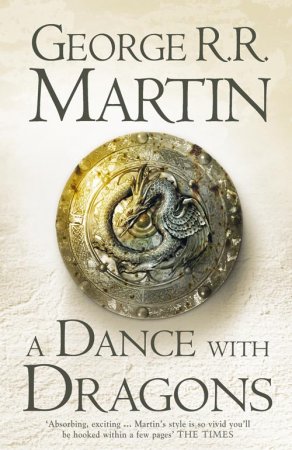 A Dance with Dragons
A Dance with Dragons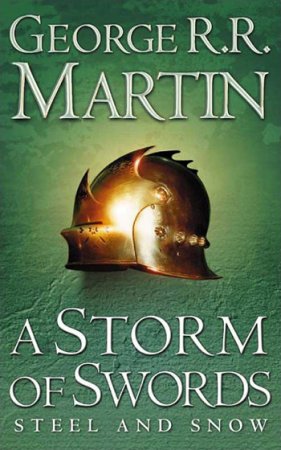 A Storm of Swords
A Storm of Swords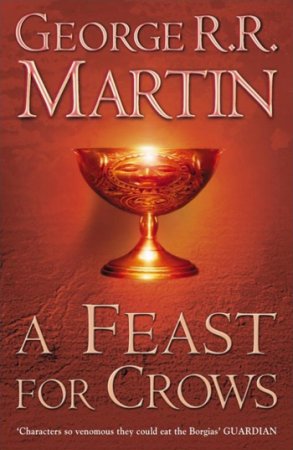 A Feast for Crows
A Feast for Crows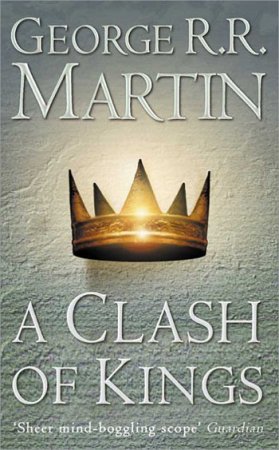 A Clash of Kings
A Clash of Kings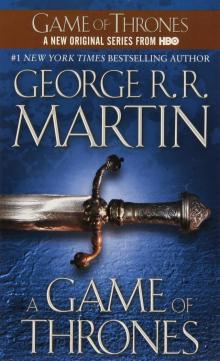 A Game of Thrones
A Game of Thrones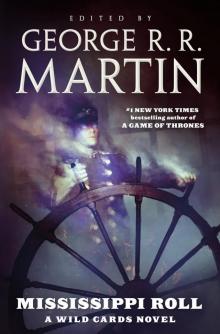 Mississippi Roll
Mississippi Roll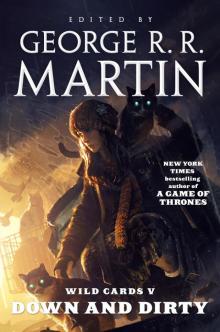 Wild Cards V: Down and Dirty
Wild Cards V: Down and Dirty Busted Flush
Busted Flush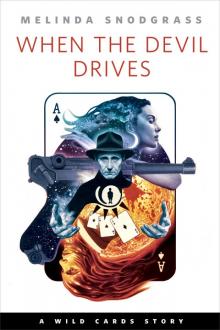 When the Devil Drives
When the Devil Drives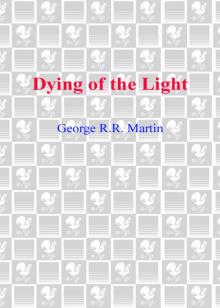 Dying of the Light
Dying of the Light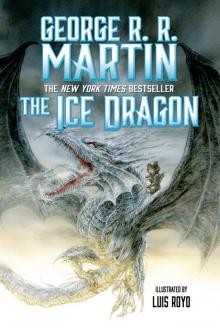 The Ice Dragon
The Ice Dragon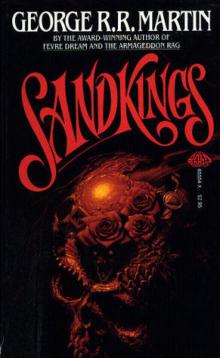 Sandkings
Sandkings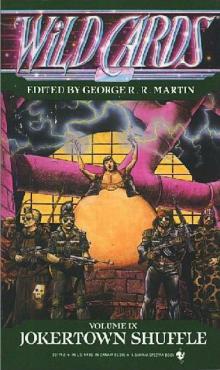 Jokertown Shuffle
Jokertown Shuffle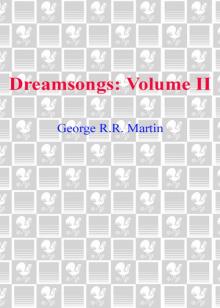 Dreamsongs. Volume II
Dreamsongs. Volume II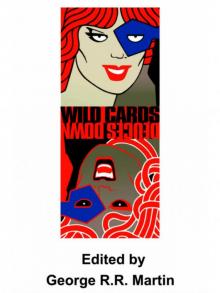 Deuces Down
Deuces Down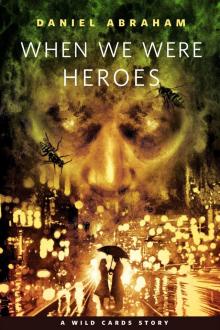 When We Were Heroes
When We Were Heroes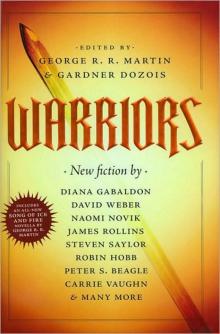 Warriors
Warriors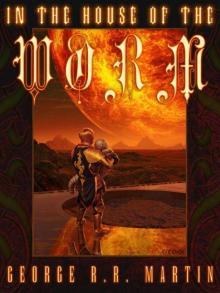 In the House of the Worm
In the House of the Worm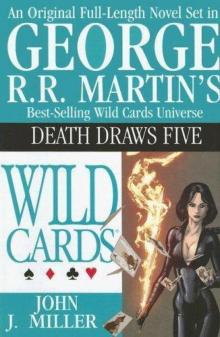 Death Draws Five
Death Draws Five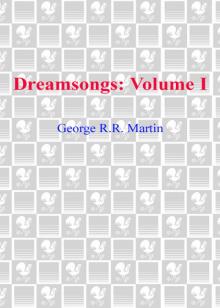 Dreamsongs. Volume I
Dreamsongs. Volume I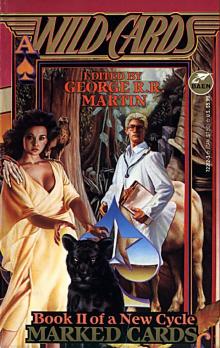 Marked Cards
Marked Cards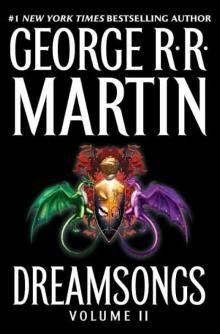 Dreamsongs
Dreamsongs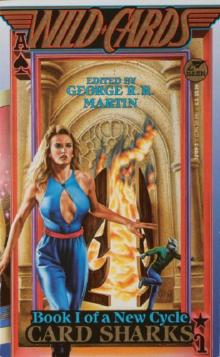 Card Sharks
Card Sharks Dangerous Women
Dangerous Women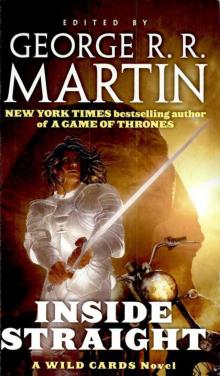 Inside Straight
Inside Straight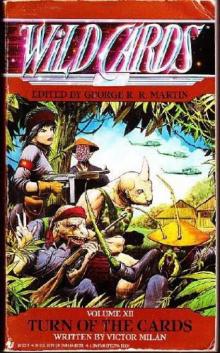 Turn of the Cards
Turn of the Cards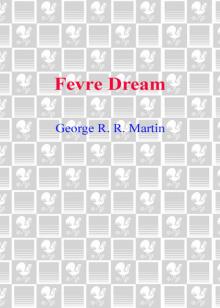 Fevre Dream
Fevre Dream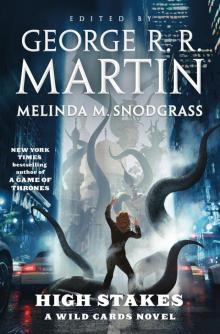 High Stakes: A Wild Cards Novel
High Stakes: A Wild Cards Novel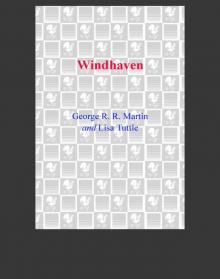 Windhaven
Windhaven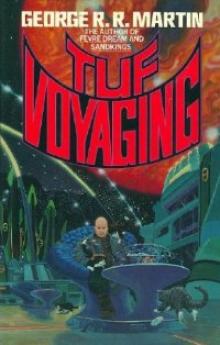 Tuf Voyaging
Tuf Voyaging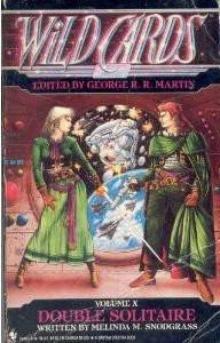 Double Solitaire
Double Solitaire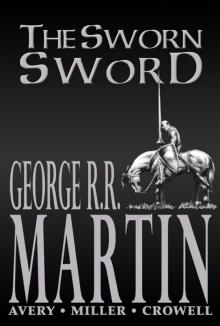 The Sworn Sword
The Sworn Sword Low Chicago
Low Chicago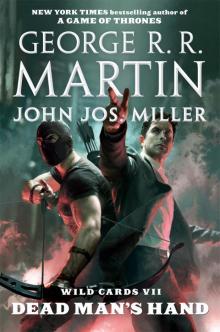 Dead Man's Hand
Dead Man's Hand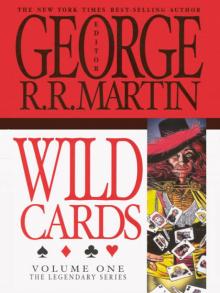 Wild Cards
Wild Cards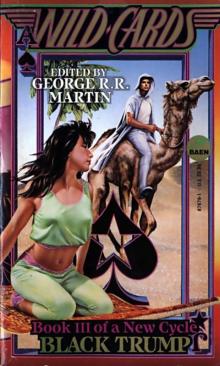 Black Trump
Black Trump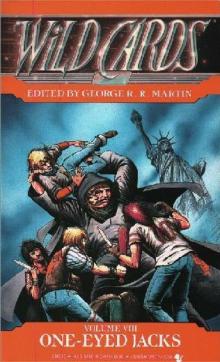 One Eyed Jacks
One Eyed Jacks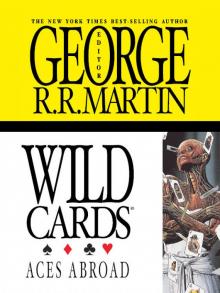 Wild Cards: Aces Abroad
Wild Cards: Aces Abroad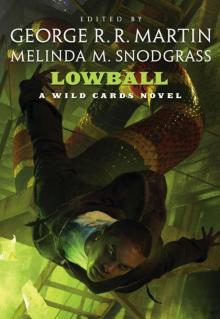 Lowball: A Wild Cards Novel
Lowball: A Wild Cards Novel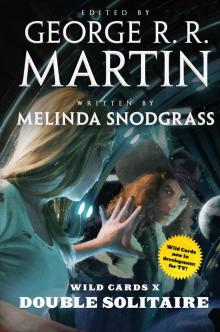 Double Solitaire (2019 Edition)
Double Solitaire (2019 Edition)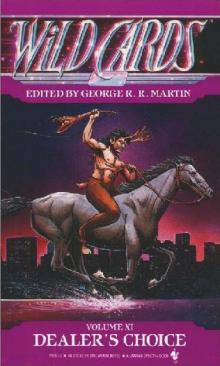 Dealer's Choice
Dealer's Choice Ace in the Hole
Ace in the Hole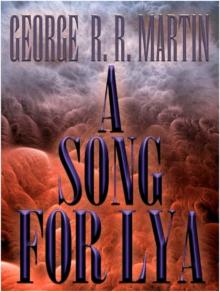 A Song for Lya: And Other Stories
A Song for Lya: And Other Stories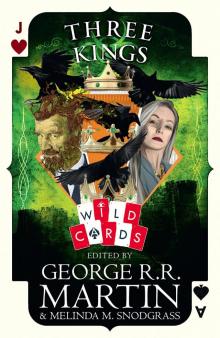 Three Kings
Three Kings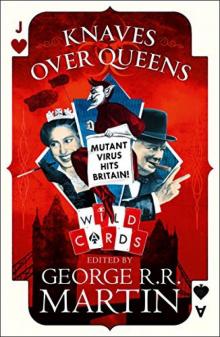 Knaves Over Queens
Knaves Over Queens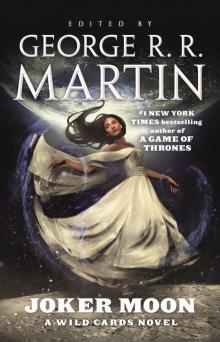 Joker Moon
Joker Moon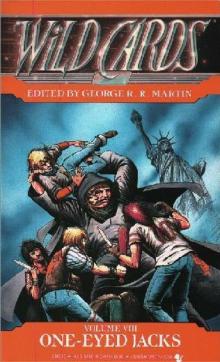 One Eyed Jacks wc-8
One Eyed Jacks wc-8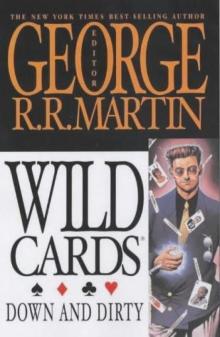 Down And Dirty wc-5
Down And Dirty wc-5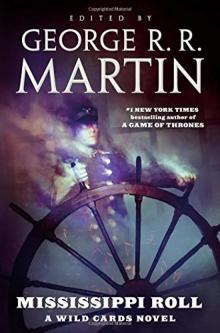 Mississippi Roll_A Wild Cards Novel
Mississippi Roll_A Wild Cards Novel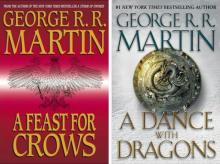 A Feast for Dragons
A Feast for Dragons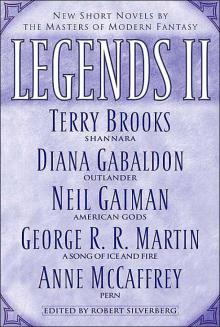 The Sworn Sword ttodae-2
The Sworn Sword ttodae-2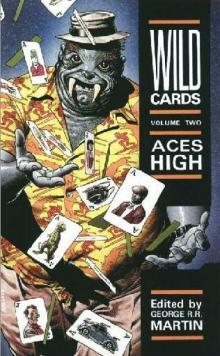 Aces High wc-2
Aces High wc-2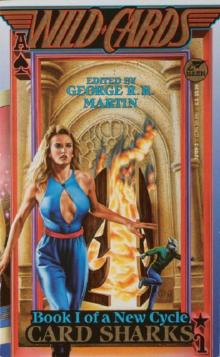 Wild Cards 13 : Card Sharks
Wild Cards 13 : Card Sharks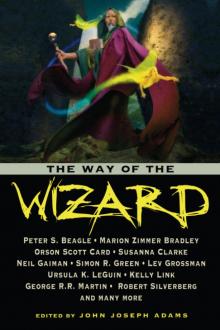 Way of the Wizard
Way of the Wizard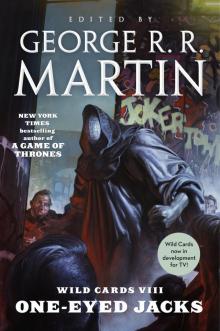 Wild Cards VIII: One-Eyed Jacks
Wild Cards VIII: One-Eyed Jacks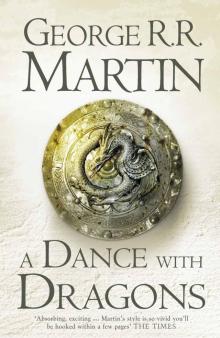 A Dance With Dragons: Book 5 of A Song of Ice and Fire (Song of Ice & Fire 5)
A Dance With Dragons: Book 5 of A Song of Ice and Fire (Song of Ice & Fire 5)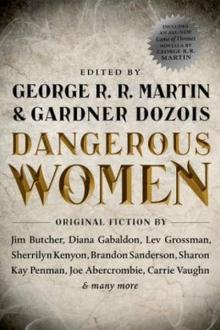 The Princess and The Queen, Or, The Blacks and The Greens (a song of ice and fire)
The Princess and The Queen, Or, The Blacks and The Greens (a song of ice and fire)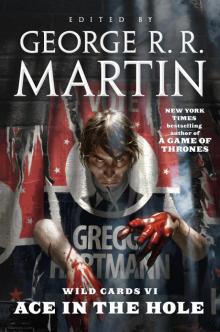 Wild Cards VI--Ace in the Hole
Wild Cards VI--Ace in the Hole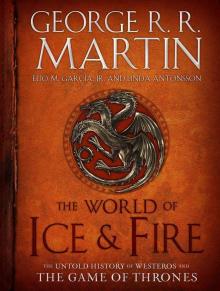 The World of Ice & Fire: The Untold History of Westeros and the Game of Thrones (A Song of Ice and Fire)
The World of Ice & Fire: The Untold History of Westeros and the Game of Thrones (A Song of Ice and Fire)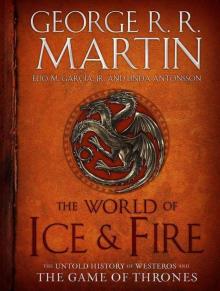 The World of Ice & Fire: The Untold History of Westeros and the Game of Thrones
The World of Ice & Fire: The Untold History of Westeros and the Game of Thrones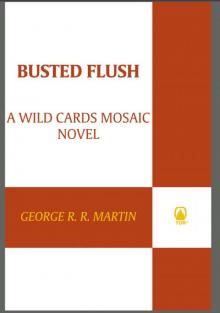 Busted Flush wc-19
Busted Flush wc-19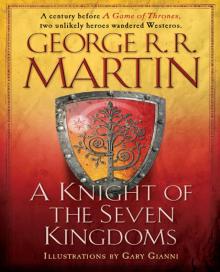 A Knight of the Seven Kingdoms
A Knight of the Seven Kingdoms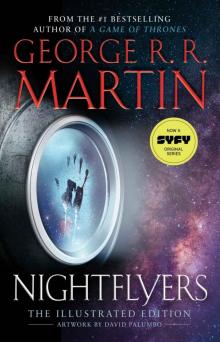 Nightflyers: The Illustrated Edition
Nightflyers: The Illustrated Edition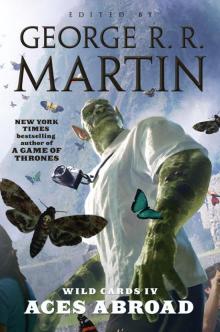 Wild Cards IV
Wild Cards IV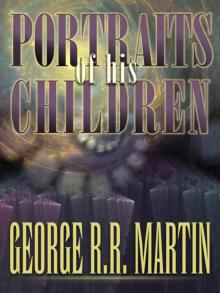 Portraits of His Children
Portraits of His Children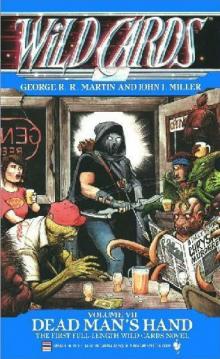 Dead Mans Hand wc-7
Dead Mans Hand wc-7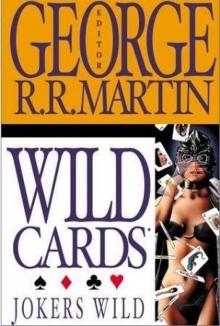 Jokers Wild wc-3
Jokers Wild wc-3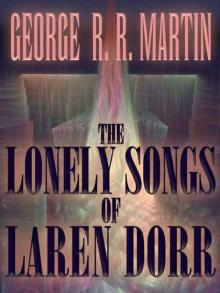 The Lonely Songs of Laren Dorr
The Lonely Songs of Laren Dorr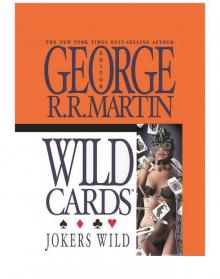 Wild Cards III: Jokers Wild
Wild Cards III: Jokers Wild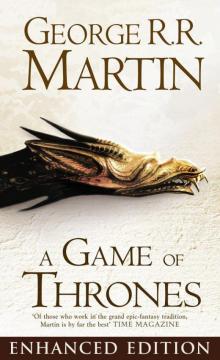 A Game of Thrones Enhanced Edition
A Game of Thrones Enhanced Edition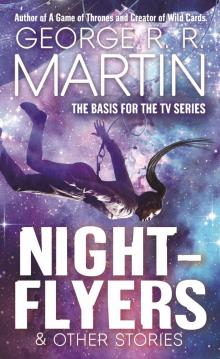 Nightflyers & Other Stories
Nightflyers & Other Stories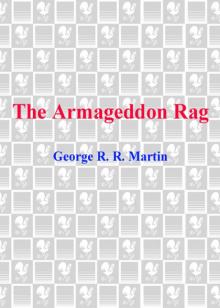 Armageddon Rag
Armageddon Rag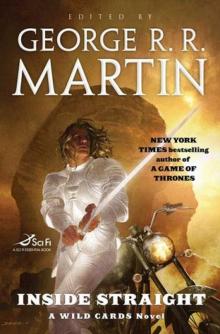 Wild Cards: Inside Straight
Wild Cards: Inside Straight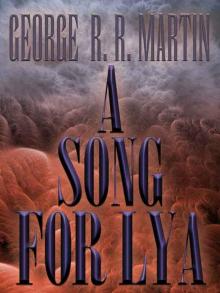 A Song for Lya
A Song for Lya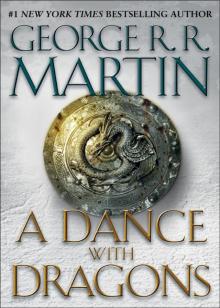 A Dance with Dragons: A Song of Ice and Fire: Book Five
A Dance with Dragons: A Song of Ice and Fire: Book Five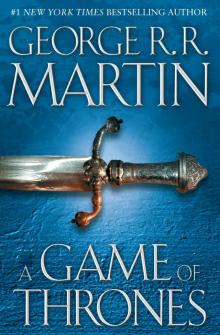 Song of Fire & Ice 01 - A Game of Thrones
Song of Fire & Ice 01 - A Game of Thrones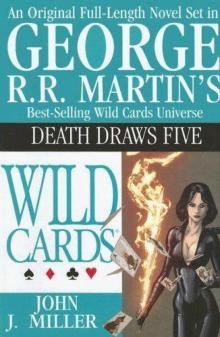 Death Draws Five wc-17
Death Draws Five wc-17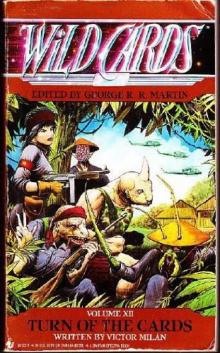 Turn of the Cards w-12
Turn of the Cards w-12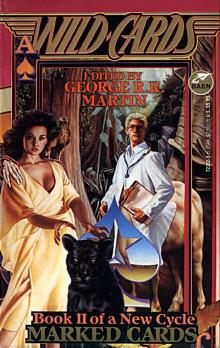 Wild Cards 14 - Marked Cards
Wild Cards 14 - Marked Cards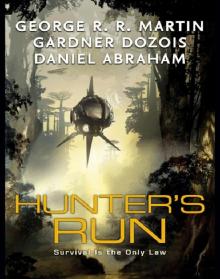 Hunter's Run
Hunter's Run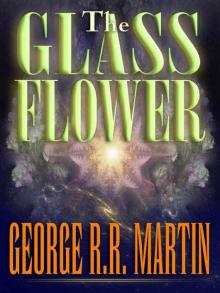 The Glass Flower
The Glass Flower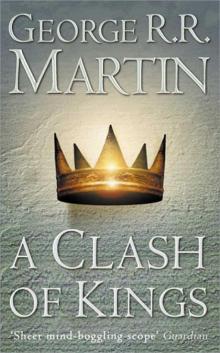 A Clash of Kings asoiaf-2
A Clash of Kings asoiaf-2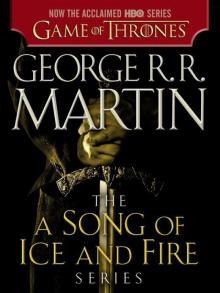 A Game of Thrones 5-Book Bundle: A Song of Ice and Fire Series: A Game of Thrones, A Clash of Kings, A Storm of Swords, A Feast for Crows, and A Dance with Dragons (Song of Ice & Fire)
A Game of Thrones 5-Book Bundle: A Song of Ice and Fire Series: A Game of Thrones, A Clash of Kings, A Storm of Swords, A Feast for Crows, and A Dance with Dragons (Song of Ice & Fire)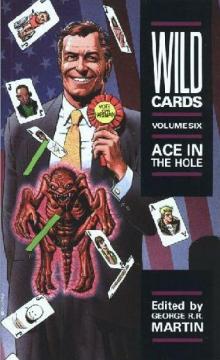 Ace In The Hole wc-6
Ace In The Hole wc-6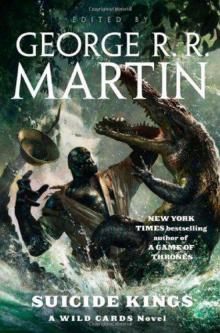 Suicide Kings wc-20
Suicide Kings wc-20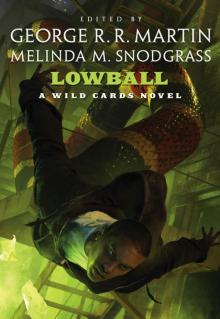 Lowball
Lowball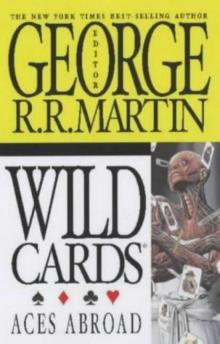 Aces Abroad wc-4
Aces Abroad wc-4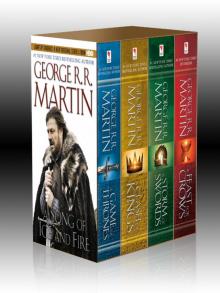 George R. R. Martin's a Game of Thrones 4-Book Bundle
George R. R. Martin's a Game of Thrones 4-Book Bundle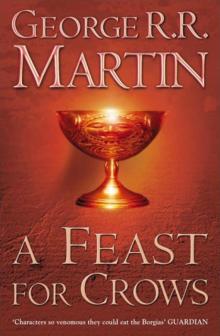 A Feast for Crows asoiaf-4
A Feast for Crows asoiaf-4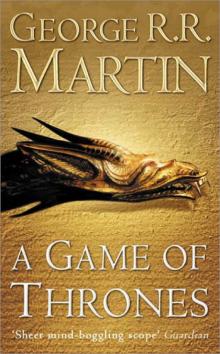 A Game of Thrones asoiaf-1
A Game of Thrones asoiaf-1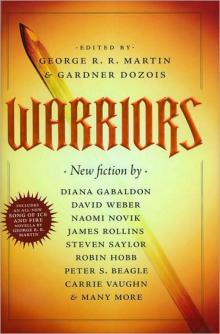 The Mystery Knight ttodae-3
The Mystery Knight ttodae-3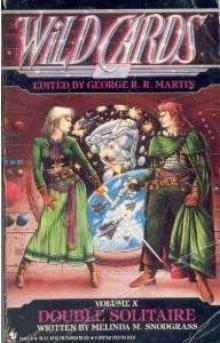 Double Solitaire w-10
Double Solitaire w-10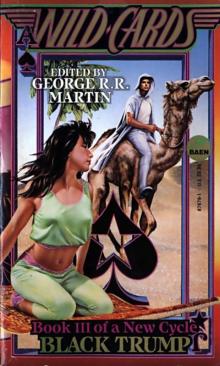 Wild Cards 15 - Black Trump
Wild Cards 15 - Black Trump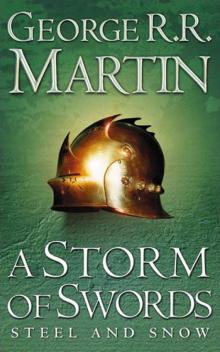 A Storm of Swords asoiaf-3
A Storm of Swords asoiaf-3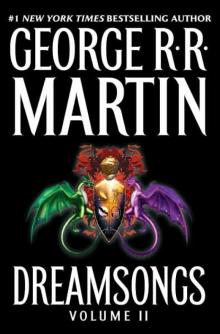 The Hedge Knight ttodae-1
The Hedge Knight ttodae-1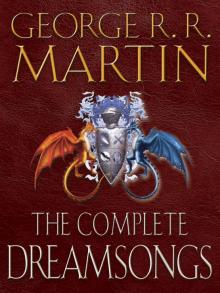 Dreamsongs 2-Book Bundle
Dreamsongs 2-Book Bundle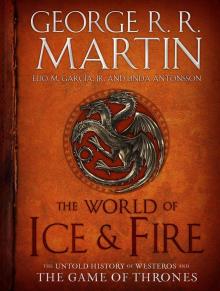 The World of Ice & Fire
The World of Ice & Fire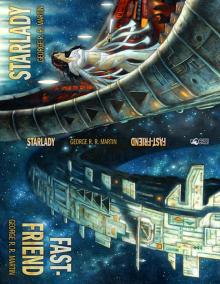 Starlady & Fast-Friend
Starlady & Fast-Friend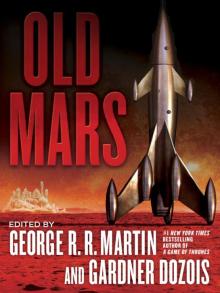 Old Mars
Old Mars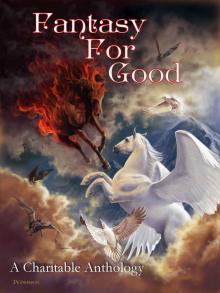 Fantasy For Good: A Charitable Anthology
Fantasy For Good: A Charitable Anthology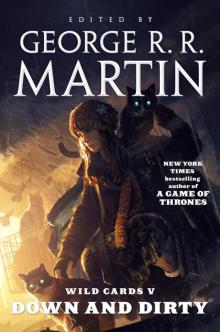 Wild Cards V
Wild Cards V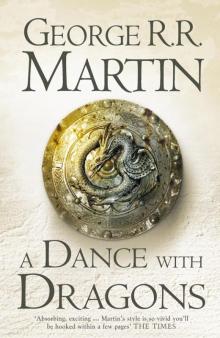 A Dance with Dragons asoiaf-5
A Dance with Dragons asoiaf-5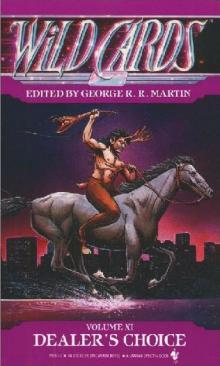 Dealer's Choice w-11
Dealer's Choice w-11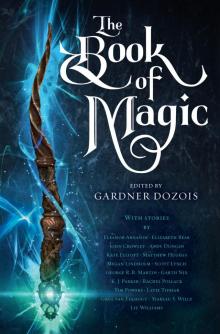 The Book of Magic
The Book of Magic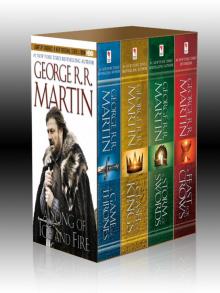 A Game of Thrones 4-Book Bundle
A Game of Thrones 4-Book Bundle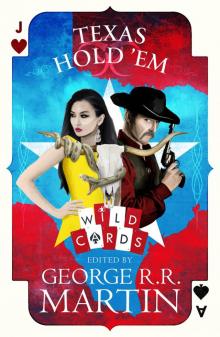 Texas Hold 'Em
Texas Hold 'Em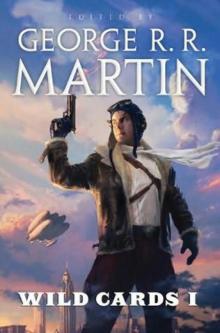 Wildcards wc-1
Wildcards wc-1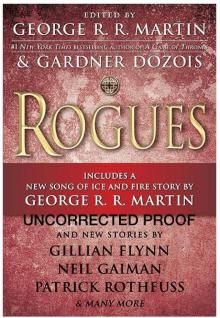 Rogues
Rogues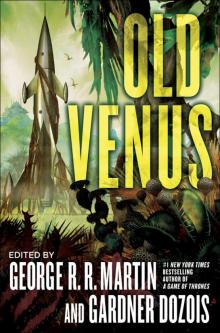 Old Venus
Old Venus